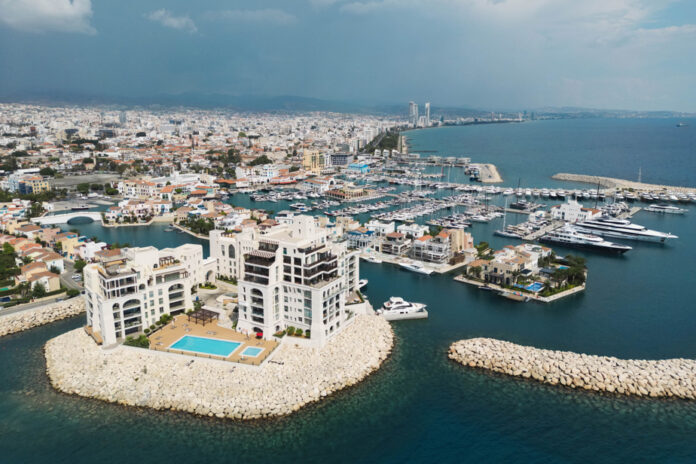A new investigation by the International Consortium of Investigative Journalists reveals how Cyprus serves as a hub for dirty money from Russian oligarchs, authoritarian regimes and criminals.
As bombs rain down on Ukraine and Vladimir Putin’s tanks head towards Kyiv on March 1, 2022, numerous emails marked “urgent” arrive at professional offices in Cyprus. In one, PwC gives instructions to finalize the transfer of a US$1.4 billion investment in the world’s largest tour operator, Germany’s TUI. The investment of multi-billionaire Alexei Mordashov.
At the time, the European Union (EU) had just placed him under sanction because of his links with Moscow. PwC is trying to transfer its shares to a company in the British Virgin Islands (BVI)… belonging to its partner.
These documents are part of Cyprus Confidential, new data leaks on Cyprus obtained by the Consortium (ICIJ). This team is also at the origin of the Panama Papers and the Pandora Papers, two other international investigations which shook the world of offshore finance, in 2016 and 2021.
For eight months, the organization has been coordinating work based on this information. La Presse and Radio-Canada participated, along with 67 other media outlets in 55 countries.
The investigation shows how Cypriot companies helped circulate the money of collaborators of Vladimir Putin’s regime, even after the invasion of Ukraine in February 2022 and international sanctions. In all, ICIJ and its partners found in the data nearly 800 companies and trusts controlled or owned by Russians sanctioned since 2014, the year Moscow invaded Crimea.
As an EU member, Cyprus must meet standards on money laundering. But the island “lacks credibility,” says Alexander Apostolides, an economic historian on the island, in an interview with the German team at Paper Trail Media, one of the ICIJ’s main partners in this investigation. “Professionals seem to find ways to circumvent regulations and do things that are either illegal or immoral. »
The researcher was part of the Economic Council of the country’s former president Níkos Anastasiádis until 2017. According to him, the country “must show that it is ready to put in place rules worthy of 2023”, if it wants to keep its large financial services industry.
Cyprus Confidential’s data contains 3.6 million documents from seven leaks from different sources, including six administrative services firms that arrange the affairs of their wealthy clients in Cyprus.
The documents date from the 1990s to 2022. They include due diligence and confidential financial reports, emails and bank statements, among others.
Cyprus Confidential describes in particular how the Cypriot branch of PwC helped Russian oligarchs protect their wealth from Western sanctions. But their efforts to protect Mordashov’s interests in TUI may prove futile.
Contacted by the team of German investigative journalists Paper Trail Media, the tour operator affirms that the transaction is invalid because of the sanctions and that a financial investigation has been opened in Germany. “The shares therefore continue to be held indirectly by Mr. Mordachov,” according to a TUI spokesperson.
In Canada, TUI was a 49% shareholder in tour operator Sunwing when the carrier Westjet bought it last March. After the transaction, TUI became a shareholder of WestJet
The latest documents on Mordashov’s US1.4 billion transaction on TUI, which La Presse spotted in Cyprus Confidential, date from March 2, 2022, two days after the imposition of European sanctions. In a response to Paper Trail Media, the Ministry of Finance of Cyprus specifies that a criminal investigation is underway on this subject.
Contacted by the ICIJ, the oligarch’s entourage assured that “all the information on the transfer of shares” of TUI had been disclosed to the authorities. “Not once in his long career has Mr. Mordashov, or any of his companies, violated any law, in Europe, Russia or elsewhere,” says his spokesperson Anastasia Mishanina.
In a message to the British daily The Guardian, contributor to ICIJ, a spokesperson for PwC in London, Mike Davies, asserts that the firm “was not aware of a criminal investigation” into the transfer of shares of TUI. “Any allegations of violations of laws and regulations are taken very seriously, investigated and appropriate action taken. »
In addition to Mordashov, PwC also counted among its clients Alexander Abramov and Alexander Frolov, two other sanctioned oligarchs linked to Evraz PLC, the Russian steelmaker that supplies the bulk of the rails used to transport arms and munitions to Ukraine.
PwC says it has gotten rid of 60 clients since February 2022. In September, the firm’s Cypriot branch announced a “significant contraction” in its activities due to compliance with sanctions against Moscow.
The large accounting firm is far from being the only one involved. ICIJ identified in the data two-thirds of the 104 Russian billionaires named in Forbes magazine’s 2023 list. Cypriot administrative services companies serve, among others, 44 “politically exposed persons”: officials, their relatives and other individuals linked to state-owned companies and organizations at risk of corruption or illicit activities.
In a statement to ICIJ, Cypriot government spokesperson Konstantinos Letymbiotis assures that the current administration, in place since March 2023, exercises “zero tolerance” for violations of sanctions and laws. “Our government is unequivocally committed to fighting corruption and illicit finance,” he said.
Cyrus Confidential details some oligarchs’ investments in professional sports and their opulent lifestyles, including yachts, luxury properties and art collections.
Many of the details concern Roman Abramovitch, owner of the Chelsea FC soccer club in London until 2022. The data contains contracts that one of his companies signed for private concerts of a range of world stars: Prince, Sting, Red Hot Chili Peppers, Amy Winehouse…
In addition to those close to Moscow, corrupt or downright criminal regimes are also among the clients of Cypriot firms, such as that of Syrian dictator Bashar al-Assad, an ally of Russia accused of war crimes.
State-owned Syrian Petroleum Company used an island middleman to circumvent a U.S. ban on trade with Syria and attempt to buy oil equipment from Texas, one of the investigations reveals ICIJ.















